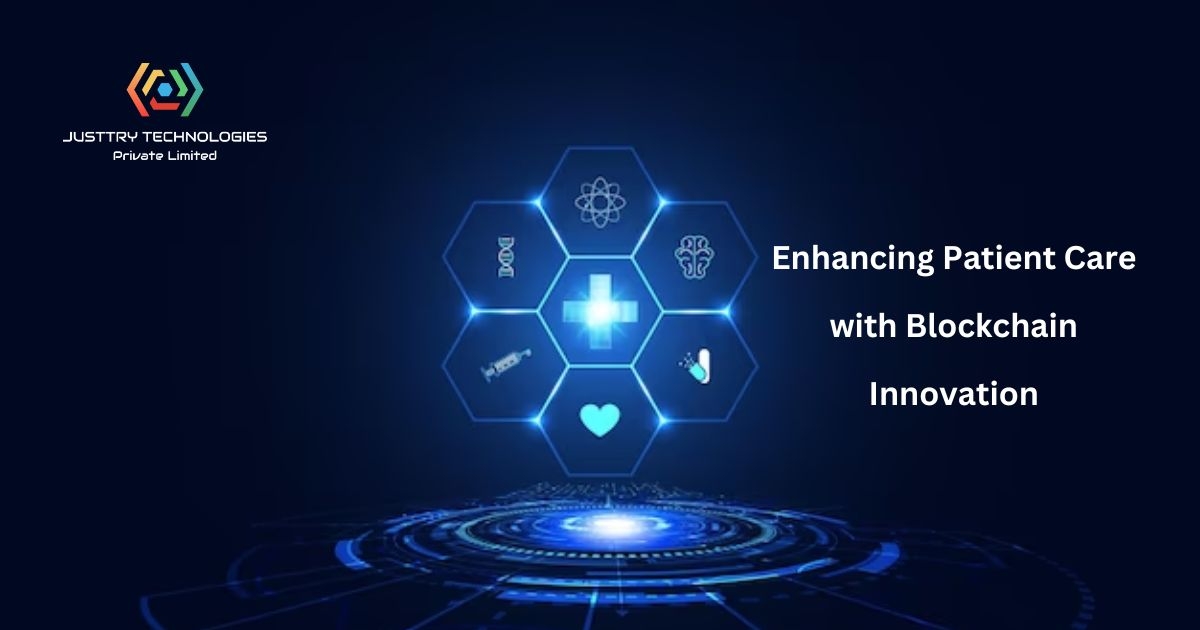The Benefits of Healthcare in Blockchain for Doctors and Patients

1. Introduction
Healthcare has long suffered from inefficiencies, data breaches, and fragmented systems that hinder seamless patient care. With the rise of blockchain technology in healthcare, the industry is undergoing a radical transformation. This decentralized and immutable ledger system ensures security, transparency, and efficiency in medical processes.
Blockchain is revolutionizing how patients and doctors interact with data, reducing administrative burdens while increasing security and trust. Leading blockchain development service providers are now focusing on creating suitable solutions for the healthcare sector, enabling smoother transactions, better interoperability, and enhanced patient autonomy.
2. Enhanced Data Security and Privacy
Patient records contain sensitive information that, if compromised, can lead to dire consequences. Blockchain technology for healthcare mitigates security risks by decentralizing data storage and ensuring immutability.
-
Traditional centralized databases are prime targets for cyberattacks, but blockchain’s cryptographic hashing protects against data tampering.
-
Private and permissioned blockchains ensure that only authorized personnel can access medical records.
-
With blockchain, patients no longer need to worry about unauthorized modifications or breaches that expose their confidential health history.
By leveraging blockchain, healthcare providers can strengthen data protection while ensuring compliance with stringent regulatory standards such as HIPAA(Health Insurance Portability and Accountability Act) and GDPR(General Data Protection Regulation).
3. Improved Interoperability Between Systems
One of the most persistent challenges in healthcare is the lack of interoperability between different hospitals, laboratories, and clinics. Traditional electronic health record (EHR) systems often operate in silos, making seamless data exchange difficult.
-
Blockchain development service solutions provide a unified ledger that enables secure data sharing without compromising privacy.
-
Smart contracts automate data authorization, ensuring only relevant stakeholders can access patient records.
-
With blockchain, a patient’s entire medical history can be instantly retrieved, eliminating duplicate tests and unnecessary delays in treatment.
Blockchain fosters a collaborative healthcare ecosystem, where doctors can access patient histories regardless of geographic location.
4. Reduced Administrative Burden for Doctors
The bureaucratic workload in healthcare is overwhelming. Physicians spend countless hours handling paperwork, verifying insurance claims, and managing billing processes. Blockchain technology in healthcare offers a powerful solution:
-
Automated claims processing through smart contracts reduces human intervention, eliminating errors and fraud.
-
Decentralized ledgers streamline documentation, ensuring accuracy in patient histories, prescriptions, and lab reports.
-
Doctors can spend more time on patient care instead of administrative tasks, improving overall efficiency and reducing burnout.
By integrating blockchain into healthcare, the industry can shift towards a more patient-centric approach, where doctors focus on what truly matters—saving lives.
5. Increased Transparency and Trust
The healthcare industry has long struggled with lack of transparency, leading to malpractice, fraud, and inefficiencies. Blockchain introduces a tamper-proof system where every transaction is recorded in a way that ensures full accountability.
-
Supply chain verification prevents counterfeit drugs from entering the market.
-
Prescription tracking ensures that patients receive the correct dosage and medication.
-
Medical audit trails make it easier to track physician decisions, reducing instances of malpractice and corruption.
By leveraging blockchain’s trust-building capabilities, the healthcare sector can restore confidence among both doctors and patients.
6. Empowering Patients with Data Ownership
Traditionally, hospitals and insurers control patient data, making it difficult for individuals to access or transfer their own medical records. Blockchain technology for healthcare is changing this paradigm.
-
Patients can own, manage, and share their medical history using self-sovereign identity solutions.
-
With blockchain-powered patient portals, individuals can grant or revoke access to their data without intermediaries.
-
Decentralized identity verification ensures that only authorized healthcare providers can retrieve patient information.
This shift towards patient empowerment enhances transparency, encourages proactive health management, and ensures that individuals have full autonomy over their personal health data.
7. Future of Blockchain in Healthcare
The integration of blockchain into healthcare is still in its early stages, but the potential is limitless. Several key developments are on the horizon:
-
AI-driven diagnostics and predictive analytics will be enhanced through blockchain-secured data sets.
-
Telemedicine and remote healthcare will benefit from blockchain-powered identity verification and secure data transmission.
-
Blockchain development service providers are actively working on overcoming scalability challenges to increase adoption.
Despite its vast benefits, blockchain adoption faces hurdles such as regulatory concerns, scalability issues, and industry-wide resistance to change. However, as more healthcare institutions realize its potential, blockchain will inevitably become a cornerstone of next-generation healthcare infrastructure.
Conclusion
Blockchain is redefining healthcare by making it more secure, efficient, and transparent. Doctors benefit from streamlined workflows and reduced administrative burdens, while patients gain greater control over their medical data. As blockchain technology in healthcare continues to evolve, its impact will only deepen, paving the way for a more patient-centric, fraud-resistant, and technologically advanced medical system.
With blockchain development service providers pushing the boundaries of innovation, the healthcare industry is on the brink of a digital revolution—one that prioritizes security, trust, and efficiency.
- Questions and Answers
- Opinion
- Motivational and Inspiring Story
- Technology
- Live and Let live
- Focus
- Geopolitics
- Military-Arms/Equipment
- Securitate
- Economy
- Beasts of Nations
- Machine Tools-The “Mother Industry”
- Art
- Causes
- Crafts
- Dance
- Drinks
- Film/Movie
- Fitness
- Food
- Jocuri
- Gardening
- Health
- Home
- Literature
- Music
- Networking
- Alte
- Party
- Religion
- Shopping
- Sports
- Theater
- Health and Wellness
- News
- Culture

